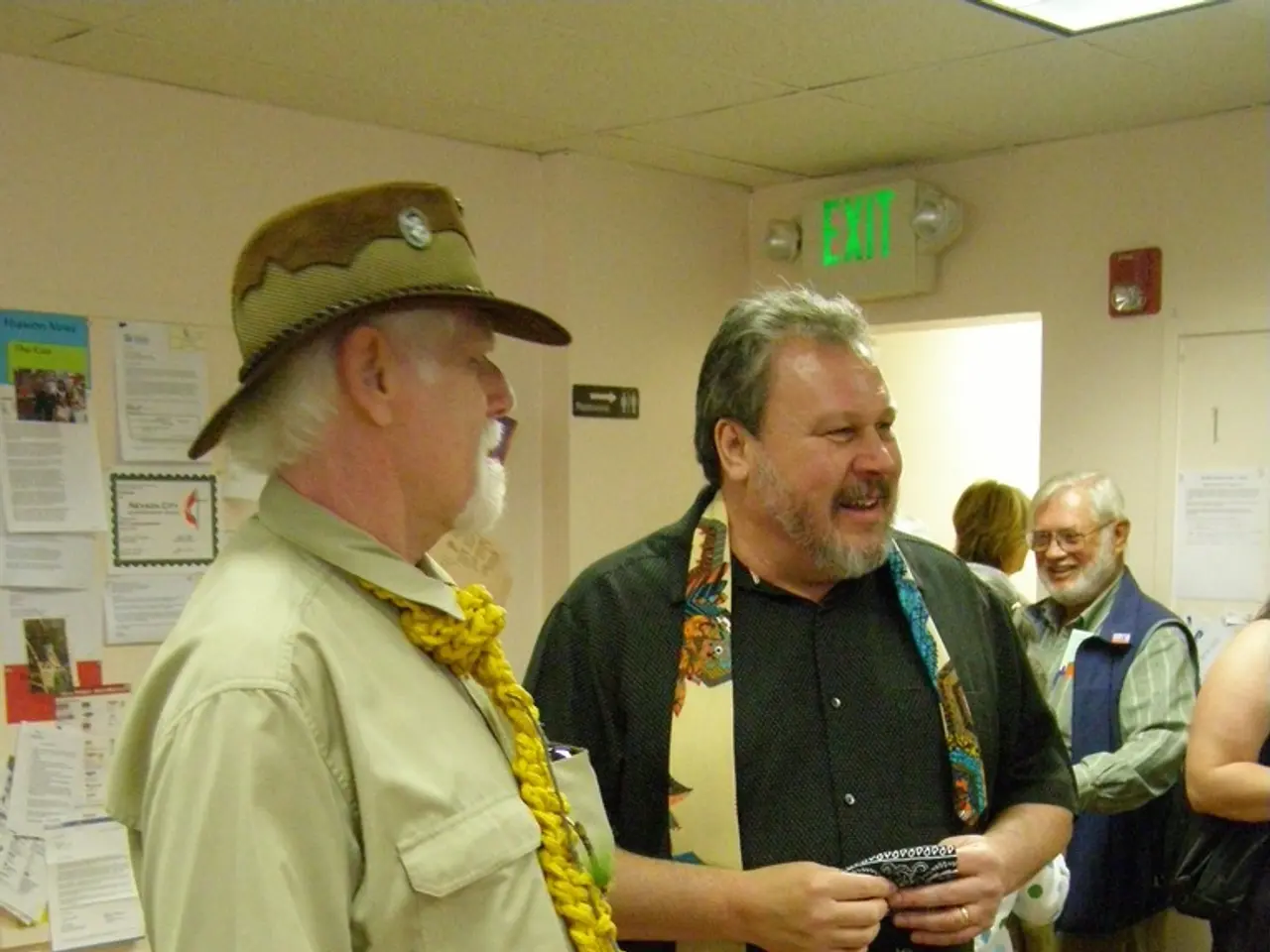Guidelines for crucial legal resources for senior citizens, clarified
===========================================================
As the aging population continues to grow, it's essential that seniors have access to the legal resources they need to navigate the unique challenges they may face. Here's a look at some key resources available to help older adults protect their rights and well-being.
Government Programs and Agencies
The Older Americans Act (OAA), administered by the Administration for Community Living (ACL), is a federal law that provides funding for a wide range of services for adults aged 60 and over. These services include legal assistance, elder abuse prevention, caregiver support, transportation, home-delivered meals, and the Long-Term Care Ombudsman Program, which advocates for seniors in long-term care settings. Local Area Agencies on Aging (AAAs) coordinate direct service delivery and legal support at the community level.
AAAs serve as accessible local resources, connecting older adults to relevant services, including free or reduced-cost legal help with issues such as estate planning, housing, benefits, and protection against exploitation. They work closely with State Units on Aging and nonprofit legal aid organizations to provide tailored assistance to seniors.
Nonprofit Organizations and Legal Aid Programs
In addition to OAA and AAAs, nonprofit organizations and legal aid programs offer specialized help around common legal challenges like elder abuse, financial exploitation, housing, healthcare, and benefits claims. These organizations often collaborate with government agencies to fill gaps in services and advocate for seniors’ rights.
Specialized legal services for senior housing and long-term care contracts require legal expertise to address real estate, healthcare, and finance issues related to senior living communities. Some law firms and nonprofit groups provide specialized counseling and representation in these areas.
State Protections and Laws
There are also state protections related to medical debt and consumer rights that impact seniors, such as limits on medical debt lawsuits, homestead exemptions to protect seniors’ homes from creditors, and bankruptcy protections. The extent and enforcement of these protections vary widely by state, which means seniors often need localized legal advice to safeguard their assets.
Empowering Seniors with Education
Educational initiatives empowering seniors about their legal rights are essential for fostering informed decision-making, enabling the aging population to navigate legal matters effectively. The National Council on Aging (NCOA) helps seniors understand their entitlements and navigate complex legal landscapes regarding benefits like Social Security and Medicare, and promotes financial literacy among seniors.
Housing Law and Legal Aid Societies
Housing law plays a critical role in ensuring safe, affordable, and accessible housing options for older adults. Legal aid societies offer free or low-cost legal assistance to seniors in need, focusing on various issues like estate planning, housing rights, and elder abuse cases.
Victims of Elder Abuse
Victims of elder abuse can report suspected abuse to Adult Protective Services (APS), local law enforcement agencies, hotlines dedicated to elder abuse reporting, and nonprofit organizations that provide advocacy and support.
Elder Law and Healthcare Directives
Understanding elder law is vital for safeguarding the rights and well-being of seniors, as it offers tailored solutions that preserve their dignity and autonomy. Healthcare directives, such as living wills and powers of attorney, are crucial for medical decision-making, ensuring healthcare preferences are honored even if the individual is incapacitated.
Collaboration and Innovation
Collaboration between government agencies, nonprofit organizations, and legal professionals is essential for creating more comprehensive support systems that address financial exploitation, guardianship issues, and healthcare access for the aging population. Innovative programs integrating technology can provide enhanced access to legal resources for the aging population, with online legal clinics and tele-law consultations bridging geographic and mobility barriers.
Conclusion
Robust legal frameworks support seniors in maintaining housing security, thus contributing positively to their quality of life as they age. AARP provides information on various legal issues, including estate planning, healthcare decisions, and social security, and offers educational programs, webinars, and publications aimed at raising awareness about elder law. Key legal issues faced by the aging population include estate planning, guardianship, and healthcare directives, which demand careful legal consideration to ensure that seniors' wishes are respected and protected.
References
[1] Administration for Community Living. (n.d.). Older Americans Act. Retrieved from https://www.acl.gov/programs/older-americans-act
[2] National Center on Law and Elder Rights. (n.d.). Legal Issues for Older Adults. Retrieved from https://ncler.acl.gov/programs/legal-issues-older-adults
[3] National Council on Aging. (n.d.). Older Americans Act. Retrieved from https://www.ncoa.org/news/resources-for-reporters/spotlight-on-aging/older-americans-act/
[4] National Consumer Law Center. (n.d.). Consumer Law and Older Adults. Retrieved from https://www.nclc.org/issues/consumer-law-and-older-adults.html
[5] Legal Services Corporation. (n.d.). Elder Justice. Retrieved from https://www.lsc.gov/initiatives/elder-justice
Science plays a crucial role in developing innovative programs integrating technology to provide enhanced access to legal resources for the aging population, bridging geographic and mobility barriers. Health-and-wellness education empowers seniors to make informed decisions about their legal rights, promoting financial literacy that contributes positively to their quality of life.




